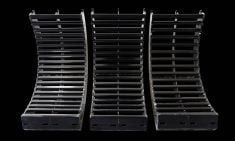The seaway responsible for moving much of Manitoba’s grain has put out its government wish list for 2021.
“We recognize that 2021 will be marked by economic uncertainty and unexpected challenges,” said Bruce Burrows, president and CEO of the Chamber of Marine Commerce (CMC), a lobbying organization for marine transportation interests including those of the Great Lakes-St. Lawrence Seaway.
“There will also be opportunities to partner with the new U.S. administration and the Canadian government to build on marine transportation’s significant public interest benefits, and at the same time create jobs, boost our trade potential and protect the environment,” he added.
Read Also

Manitoba Ag Days 2026: Local businesses gear up for Brandon farm show
Most of agriculture is seemingly at Manitoba Ag Days each January: Manitoba agribusinesses and farm groups look forward to connecting with farmers at the 2026 show.
In 2020, 9.2 million tons of grain moved through the Port of Thunder Bay, which sits on the St. Lawrence Seaway, making it the busiest year since 1997, the port authority said.
In December, port CEO Tim Heney said 74 per cent of the seaway’s grain exports originate in Manitoba.
The Chamber of Marine Commerce’s policy and regulatory priorities for 2021 include ballast water management regulations.
It’s critical that Canada and the United States seek a “level playing field” option that would ensure both countries regulate ballast water in similar fashion in their domestic fleets, the news release says. They should establish a feasible, equal timeline.
These will likely be finalized in 2021, the Chamber of Marine Commerce said.
The chamber’s second priority is safe high-water management. In 2020, shipping through the Montreal-Lake Ontario section of the seaway was delayed by 12 days to accommodate increased outflow through a dam along the route. The outflow was to prevent potential flooding on Lake Ontario.
The chamber said these delays impacted more than $80 million in shipping business whereas the increased dam outflow had little effect on lake flooding. The chamber is calling for better water management solutions that will ensure safe navigation and will protect shoreline communities.
The CMC also called for pilotage reform saying it will work with the Canadian government to develop new pilotage regulations for improved efficiency.
Greenhouse gas reduction is also top of mind for the CMC. The organization called ships a fuel-efficient and carbon-friendly way to move goods and “part of the solution to address climate change.”
The CMC said it plans to push policy measure to encourage the increased use of inland shipping, along with technology development and use of alternative fuels.
Lastly, the CMC is asking for additional icebreaking assets from Canada and the U.S., and for finalized arrangement for an additional interim icebreaker for the seaway.















